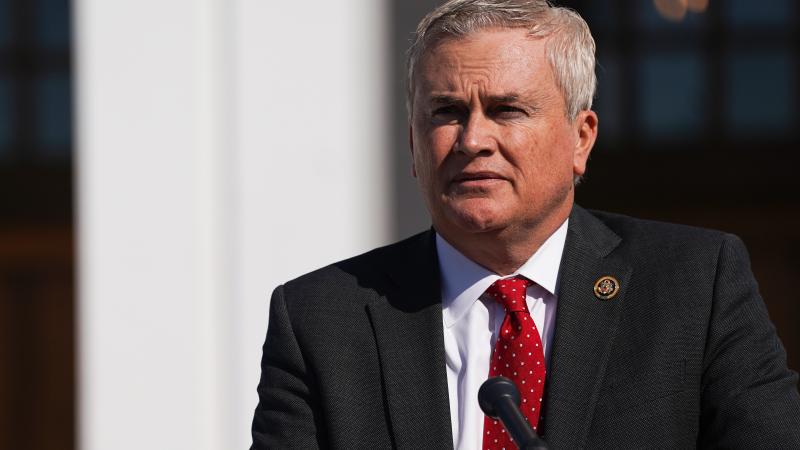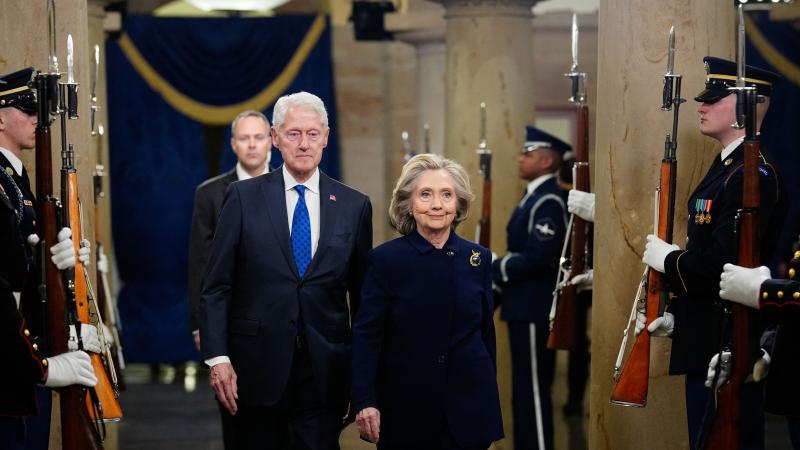Biden sanctions Iran tech firm for censorship while remaining silent on censoring US citizens
Some free speech advocates say that the sanctions showcase the hypocrisy of the Biden administration and have dire implications for foreign affairs.
The Treasury Department recently imposed sanctions on an Iran-based technology firm for helping Iranian leaders impose internet censorship on anti-government protests, but President Joe Biden is remaining silent on the U.S. government's censorship of its own citizens.
The technology firm Aravan Cloud and its co-founders Pouya Pirhosseinloo and Farhad Fatemi, as well as the firm's United Arab Emirates-based affiliate, were all sanctioned "for their roles in facilitating the Iranian regime’s censorship of the Internet in Iran," the Treasury's Office of Foreign Assets Control said Friday.
"The United States is committed to holding accountable those who seek to undermine freedom of expression and suppress dissent, and to call out regimes who deny their citizens this right," Treasury Under Secretary Brian Nelson said.
Secretary of State Antony Blinken also praised the sanctions, which he said are part of a "multi-pronged strategy to support and preserve the free flow of information to the Iranian people in the face of the Iranian regime’s unprecedented campaign of Internet disruptions and censorship."
While the Biden administration is concerned about protecting freedom of speech abroad and even sanctioning companies that colluded with foreign governments in censorship, Republican lawmakers have uncovered evidence administration worked with social media platforms to censor the speech of U.S. citizens.
In addition, free speech advocates say the Iran sanctions showcase the hypocrisy of the administration and have dire implications for foreign affairs.
“These sanctions send a message to international partners that the U.S. government will nakedly exploit legacy free speech principles by which it itself no longer abides," Mike Benz, a former State Department official and the executive director of the Foundation for Freedom Online told Just the News on Sunday. "Our government is leading the crusade to censor the internet, while sanctioning other countries for censoring their own internet. This is an 'open society for thee, closed society for me.'"
Benz also said: "There is an incredible myopia right now in the Biden foreign policy establishment. They still use free speech talking points from 2016, as if the last seven years of U.S. domestic speech crackdowns went unnoticed by the international community. It hasn’t."
Louisiana Republican Attorney General Jeff Landry and Missouri GOP Sen. Eric Schmitt, who also was the state's attorney general, testified to the House Weaponization of the Federal Government Subcommittee in March about a lawsuit they filed last year against the administration's alleged censorship.
"The Biden administration has led the largest speech censorship operation in recent American history," Schmitt testified. "Since taking office, President Biden and his team have labored to suppress viewpoints with which they disagree. And in so doing, they have infringed upon the individual freedoms of millions of Americans."
Landry said his team has "overwhelming evidence ... of collusion and conspiracy between the federal government and social media platforms to censor speech."
House Oversight and Accountability Committee Chairman James Comer (R-Ky.) is working on legislation to prevent the government from colluding with social media companies to censor Americans.
The GOP-led House in March passed the Protecting Speech from Government Interference Act.
Comer, the bill's sponsor, said the legislation expands the federal employee political activity limitations to "include a prohibition on federal employees using their official authority to influence or coerce a private sector internet platform to censor lawful speech."
America has always been a global leader on free speech and civil liberties issues, which other countries have been wary about over concerns that the U.S. would try to use the issues to influence their political processes, Benz also said.
"It was tolerated without excess resentment by other countries because America projected a very credible image that we put our money where our mouth was. We really stood for these values. We really believed them," he said. "We can't fool people anymore. We're fooling ourselves."
Madeleine Hubbard is an international correspondent for Just the News. Follow her on Twitter or Instagram.
















